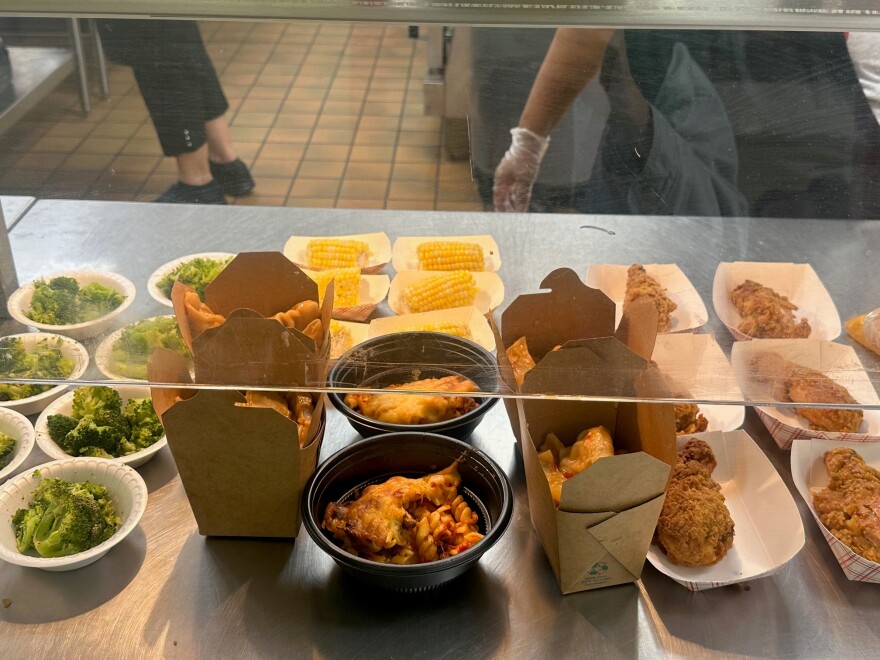As part of a larger effort to promote healthy eating, Hillsborough County Public Schools are incorporating more fresh, locally-grown produce into school meals.
October kicked off the first Farm to School Month. On Thursday, about 50,000 golden ears of sweet corn grown by R.C. Hatton Farms in Pahokee, Florida made it into school lunches across the county.
For the next harvest of the month, district officials said they're planning to serve fresh green beans.
The initiative was made possible by a partnership with the nonprofit Locally Grown, which received a $50,000 USDA Farm to School Action Grant last year.
Additional grants, donations and sponsorships will support creating a sustainable Farm to School Program with HCPS, as well as other plans for nutrition-focused lessons and activities, such as in-school gardens.

At Pinecrest Elementary School, fourth grader Giselle Rosario finished eating the last of her corn on the cob.
"I think it tastes really good because it's made from our farmers and our farmers are helping us and the universe," said Rosario.
Rosario's friend, Olivia Martinez joined in to share her knowledge about sweet corn.
"It's very tasty, it has juice inside it and sometimes it could get stuck in your teeth," said Martinez, "it's very good for you."
RELATED: Can cooking and gardening at school inspire better nutrition? Ask these kids
Shani Hall, the district's Student Nutrition Services General Manager, said many students rely on school meals, so it's crucial to make sure they're as healthy as possible.
"There are so many kids that are food insecure and they don't know where the next meal is coming from and they depend on our program for their breakfast, lunch and in many times dinner," said Hall.
In Hillsborough County, the food insecurity rate for children under the age of 18 is 13.7%.
The rate overall is 10%, according to the most recent 2021 data from Feeding America.
Hall also pointed out that a majority or about 200 of the 300 total schools in the district are under the Community Eligibility Provision or CEP, which "allows the nation’s highest poverty schools and districts to serve breakfast and lunch at no cost to all enrolled students without collecting household applications."
Across the district, breakfast is free for all students. In non-CEP schools, lunch meals cost $2.25 for elementary students and $2.75 for middle and high schoolers.
Locally Grown president and project director Jenna Kaczmarski said the program is still in its pilot stage and that they're planning to integrate more opportunities for students to garden or do small-scale farming.
"What we hope to do is build really strong community and school partnerships so that the schools have a support system in place to help them sustain their gardening programs, and then increase the collaboration with what's in the lunchroom," said Kaczmarski.
The program is a win-win, according to Hall, who noted that students get a boost in nutrition and an opportunity to learn about locally-sourced foods, all while supporting local farmers.
"If it's locally grown it doesn't lose nutrients, it's a better carbon footprint and we're putting back into our local economy too," said Hall, "So we're winning in the community."
R.C. Hatton Farm's Food Service Sales Director Charlie Hogan said they're working with Locally Grown on how to better educate students and eventually grow in certain schools.
"Florida agriculture as a whole, not just our farm, provides for about 79 million people east of the Mississippi River during winter months," said Hogan.
Florida is one of the biggest producers of sweet corn in the country.
Hogan said that events such as farm-to-school is giving farms like R.C. Hatton an opportunity to share their work with young students.




